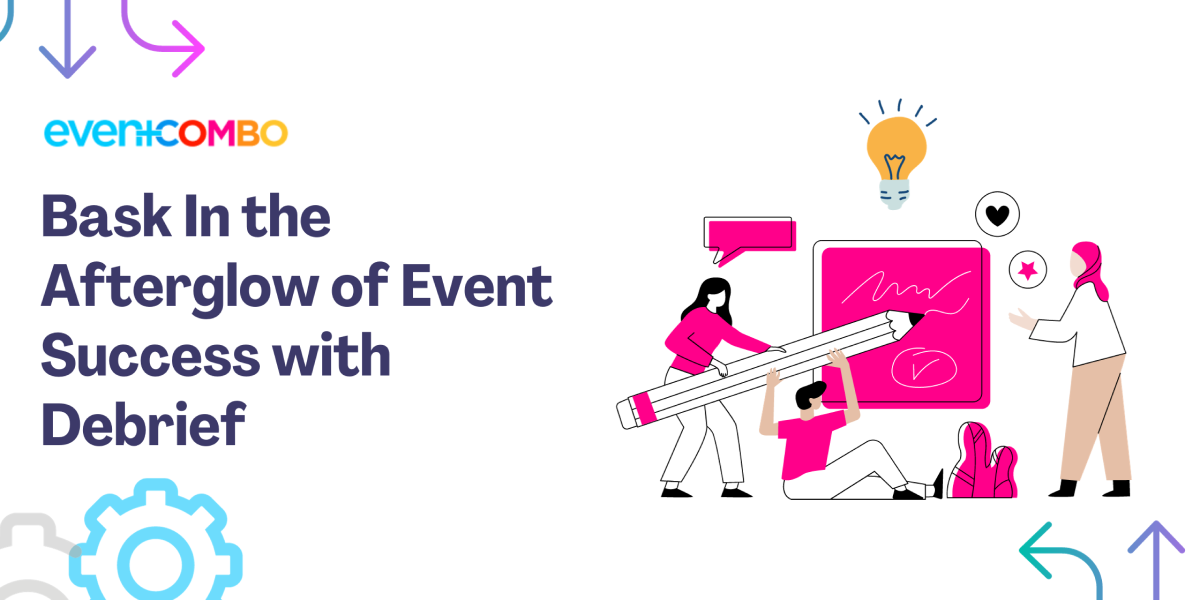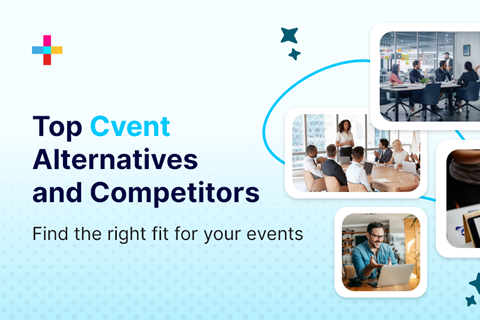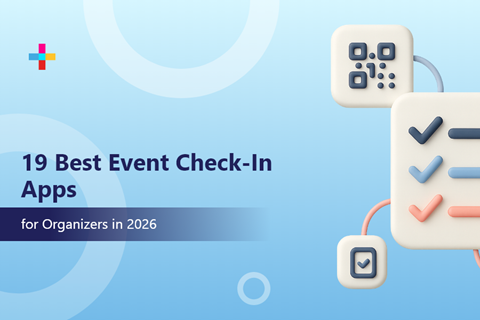Post Event Debrief - A Perfect Checklist for Strategic Evaluation

Nov 22, 2023 Shruti Shah
When you talk about events, the quest for perfection is an ongoing pursuit. While the triumph of an event is frequently gauged by its flawless execution, the real catalyst for enduring success is found in the post-event debrief. In this blog, we explore the significance of event debriefs, demystify the concept, and provide a ballpark list of questions to help you create your next post event debrief efficiently.
Understanding the Post-Event Debrief Concept
A debrief is not just a recap; it’s a strategic analysis designed to extract valuable insights. It involves a systematic review of the event's various facets, from planning and logistics to execution and engagement. By dissecting each phase, you gain a nuanced understanding of the event's dynamics.
Who would benefit from an Event Debrief?
Event Planning Teams:
- For evaluating the effectiveness of planning strategies.
- For Identifying logistical challenges and areas for improvement.
- For improving communication and coordination within the team.
Vendor Management Teams:
- For assessing vendor performance and adherence to agreements.
- For soliciting feedback on the vendor's experience.
- For discussing potential areas for collaboration in future events.
Partners and Sponsors:
- For reviewing the alignment of the event with the partner's objectives.
- For discussing the impact of the event on sponsor visibility and branding.
- For exploring opportunities for future collaboration.
Connecting Debrief to Attendee Feedback
Integrating the team's debrief with attendee feedback is pivotal for a thorough understanding of event dynamics. While internal assessments are fundamental, juxtaposing them with attendee perspectives through feedback surveys and social comments unveils a comprehensive picture. The amalgamation of internal insights and attendee feedback elevates the debrief from a routine task to a strategic tool for continuous improvement. This approach ensures that future events are not only internally optimized but also genuinely resonate with the audience, addressing their real-time expectations and feedback.
Event Debrief Question Checklist
1. Teams:
- Communication and Collaboration:
- How effective was communication within the team throughout the planning and execution stages?
- Were there any instances where improved communication could have prevented challenges?
- What strategies can be implemented to enhance team collaboration in future events?
- Challenges and Solutions:
- What were the major challenges encountered, and how were they addressed in real-time?
- Were there any recurring issues that needed a more proactive solution for future events?
- How can the team better anticipate and mitigate potential challenges in upcoming projects?
- Internal Processes and Workflow:
- How streamlined were the internal processes, from ideation to execution?
- Were there bottlenecks in the workflow that impacted efficiency?
- What adjustments can be made to optimize internal processes for smoother event execution?
- Roles and Responsibilities:
- Were team roles and responsibilities clearly defined and understood by all members?
- Did any roles overlap or lack clarity, leading to confusion?
- How can the delineation of roles and responsibilities be improved for better efficiency?
- Learning and Development:
- What new skills or knowledge did team members acquire during the event planning process?
- Were there areas where additional training or development could enhance team capabilities?
- How can the team leverage lessons learned for continuous improvement?
2. Vendors:
- Quality and Adherence to Agreements:
- Did vendors deliver products or services that met the predetermined quality standards?
- Were there any deviations from agreed-upon terms, and if so, how were they addressed?
- How can the evaluation of vendor performance be refined for future events?
- Logistical and Communication Issues:
- Were there any logistical challenges or communication breakdowns with vendors?
- How responsive and adaptable were vendors to changes or unexpected circumstances?
- What measures can be taken to improve communication and logistical coordination with vendors?
- Vendor Experience:
- How would vendors describe their experience working with our team and during the event?
- Were there aspects of the collaboration that vendors found particularly positive or challenging?
- In what ways can the vendor experience be enhanced to foster long-term partnerships?
- Innovative Solutions:
- Did vendors bring innovative solutions or ideas to enhance the event?
- Were there missed opportunities for vendors to contribute creatively?
- How can collaboration with vendors be structured to encourage and capitalize on innovative contributions?
- Feedback Mechanism:
- How can the feedback loop with vendors be strengthened for mutual improvement?
- Were there specific areas where vendors provided valuable feedback that impacted the event?
- What changes can be made to ensure continuous improvement in the vendor partnership?
3. Partners and Sponsors:
- Alignment of Goals:
- To what extent were the event goals aligned with the objectives of partners and sponsors?
- Were there any discrepancies in expectations between the organizing team and partners/sponsors?
- How can future partnerships be structured to ensure better alignment of goals?
- Successful Elements of Partnership:
- What aspects of the partnership were most successful in achieving mutual benefit?
- Were there specific strategies employed that proved particularly effective?
- How can these successful elements be replicated or expanded upon in future collaborations?
- Impact on Visibility and Branding:
- How did the event impact the visibility and branding of partners and sponsors?
- Were there opportunities for greater exposure that were not fully realized?
- In what ways can the event platform be optimized to maximize sponsor and partner visibility?
- Collaborative Opportunities:
- Were there untapped collaborative opportunities that could have enhanced the partnership?
- How can future collaborations be structured to leverage the strengths of both parties more effectively?
- Are there emerging trends or areas of interest that could be explored in future partnerships?
- Feedback and Improvement:
- How did partners and sponsors provide feedback on the event, and how was it incorporated?
- Were there any areas where partners and sponsors felt their feedback could have been better utilized?
- What mechanisms can be implemented to ensure continuous feedback and improvement in future partnerships?
Bonus - Attendee Feedback to Collate Your Debrief With
1. Highlights of the Event:
- According to attendee feedback, what were the standout moments or aspects of the event?
- Were there unexpected highlights that organizers may not have anticipated?
- How can these positive elements be emphasized and expanded upon in future events?
2. Common Concerns and Praise:
- Were there recurring concerns or criticisms raised by attendees?
- Conversely, were there aspects that received consistent praise or positive feedback?
- How can areas of concern be addressed, and positive aspects be further amplified?
3. Overall Experience:
- What was the general sentiment regarding the overall attendee experience?
- Were there any factors that significantly contributed to a positive or negative overall experience?
- How can the overall experience be enhanced for future events?
4. Engagement Activities:
- How effective were the engagement activities in capturing attendee interest?
- Were there engagement activities that stood out as particularly successful or unsuccessful?
- What new engagement strategies can be introduced based on attendee preferences?
5. Improvement Areas:
- What specific suggestions for improvement were provided by attendees?
- Were there recurring themes in feedback that point to broader areas for enhancement?
- How can the feedback loop with attendees be strengthened to ensure continuous improvement in event quality?
The success of an event is not solely determined by its execution but by the depth of analysis and improvement that follows. Armed with these questions, event organizers can navigate the debrief process with precision, ensuring that every stakeholder's perspective is considered for the continuous elevation of future events.
Connect with Eventcombo - start planning smarter, not harder. Talk to our experts today! https://bit.ly/3R9bkuP




